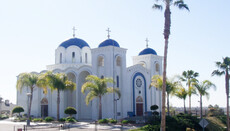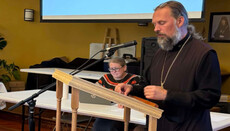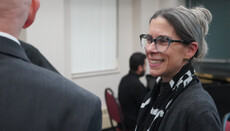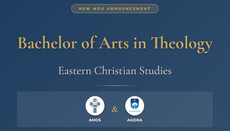Glavcom Poses Sharp Questions to Epiphany Dumenko over Deepening Crisis in OCU
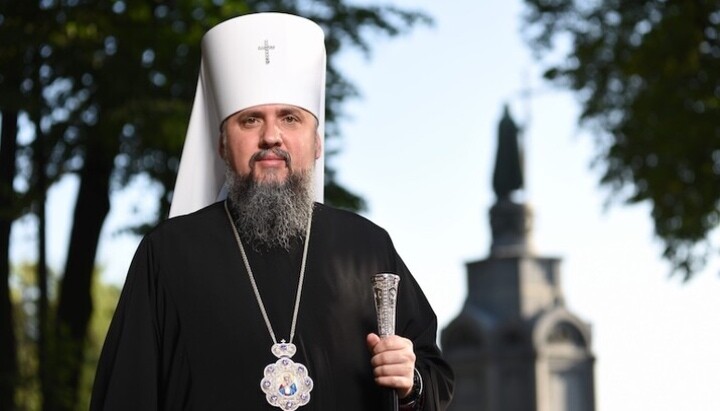
Ukrainian outlet points to internal fragmentation, clergy shortage, and lack of readiness amid declining momentum.
KYIV — On July 13, 2025, the Ukrainian news outlet Glavcom, often seen as reflecting the position of the Presidential Office, published a critical article titled “What’s Wrong with the Autocephalous Church of Ukraine? Sharp Questions to Metropolitan Epiphany.” Released just a day before the Orthodox Church of Ukraine's (OCU) synod convened, the article highlights a deepening internal crisis and growing discontent within the church.
Glavcom argues that the autocephaly formalized in January 2019 had both religious and political aims, yet the new church and its primate, Metropolitan Epiphany, have proven unprepared for rapid expansion and the challenges of wartime. The article claims his 2018 election left “a bitter taste” among participants, while his ambitions allegedly triggered open conflicts - even troubling Ecumenical Patriarch Bartholomew - and contributed to the revival of the Kyiv Patriarchate under the elderly "Honorary Patriarch" Filaret.
Despite state-backed pressure and legislation effectively banning the Ukrainian Orthodox Church (UOC) as “connected to Moscow,” the article notes that few UOC parishes have joined the OCU. One major reason cited is the severe lack of clergy, leaving many transferred churches empty and neglected. An anonymous Ukrainian official said that Metropolitan Epiphany “merely blinks in astonishment” at the growing crisis.
Even Viktor Yelensky, head of Ukraine’s State Service for Ethnopolitics and Freedom of Conscience - who recently signed the order labeling the Kyiv Metropolis of the UOC as tied to Moscow - acknowledges the problem. According to him, many parishes transfer to the OCU without a priest, and the church is also obligated to fill 70% of military chaplaincy positions - something it struggles to meet.
The article further claims that the church has cultivated a network of sympathetic journalists who avoid posing hard questions or acknowledging problems. It also critiques the slow pace of parish transitions, especially in eastern regions like Donetsk and Odesa, and the rise of parallel UOC communities functioning independently, often led by clergy ministering in homes rather than church buildings.
In a stark example, Metropolitan Oleksandr of Pereiaslav and Khmelnytskyi acknowledged conflicts during parish transitions, noting that many initiators are secular activists, sometimes even atheists, leading to fragmentation and empty temples. He reported that in Korets (Rivne region), only one of 12 parishes belongs to the OCU, yet all remain full - following clergy who refuse to join Epiphany’s jurisdiction.
MP Mykyta Poturayev, an advocate of the law banning the UOC, remarked that unlike the UOC, the OCU lacks the financial independence and major benefactors needed to sustain growth. Glavcom’s sources lament that, unlike Greece or Romania, the Ukrainian government has shown only rhetorical support and avoids direct financial aid.
The church’s inability to maintain the Kyiv-Pechersk Lavra is cited as a further symptom. Despite formal control, it lacks resources and has had little success attracting monastics from other regions. Metropolitan Oleksandr admitted that life at the Lavra has largely ceased.
Metropolitan Yevstratii of Bila Tserkva defended the church, citing military chaplaincy obligations. However, reports suggest the number of active chaplains is fewer than 100.
Finally, the article criticizes what it describes as Metropolitan Epiphany's conservatism and desire for prestige, accusing him of embracing "Moscow-style" church traits. One example cited is the public promotion of an honorary professorship awarded to him.
As for the upcoming synod, Glavcom notes a lack of agenda items of real substance, reflecting the leadership’s reluctance to act decisively. The most recent synodal documents from June 14, 2025, contain no major initiatives.
On the matter of dialogue, the OCU reiterated its accusations against the UOC for halting talks, maintaining its uncompromising position amid ongoing ecclesiastical polarization.
Previously, UOJ reported that police in the western Ukrainian city of Chernivtsi are reportedly conducting vehicle checks and interrogations in an effort to identify UOC parishioners who defended the Holy Spirit Cathedral on June 17, 2025.
